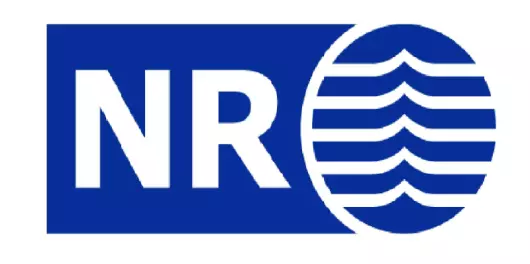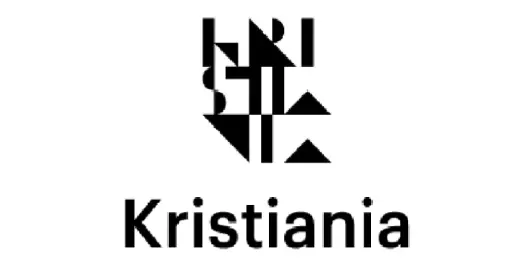Ledig stilling på Universitetet i Oslo
Blindern og Urbygningen (Foto: Wikimedia og Colourbox)
Doctoral Research Fellow in the Horizon Europe project ToNoWaste
Deadline: 31.10.2022
Universitetet i Oslo
The University of Oslo is Norway’s oldest and highest ranked educational and research institution, with 28 000 students and 7000 employees. With its broad range of academic disciplines and internationally recognised research communities, UiO is an important contributor to society.
The Department of Private Law (IFP) was established in 1955 and is one of the five departments that together comprise the Faculty of Law. The department is the largest Norwegian academic milieu working directly with private law subjects.
Job description
A position as PhD Research Fellow (SKO 1017) is available in the project ‘Towards a New Zero Food Waste Mindset Based on Holistic Assessment’ (ToNoWaste). The project is funded by the Horizon Europe Framework Programme for Research and Innovation (2021-2027). The candidate will work closely together with Professor Jukka Mähönen (ToNoWaste Work Package (WP) 6 leader), Professor Beate Sjåfjell and Postdoctoral Researcher Eléonore Maitre-Ekern in the Research Group Companies, Markets and Sustainability at the Department of Private Law.
The period of appointment runs for three years without teaching duties, or four years with teaching duties constituting 25% of the overall workload. A four-year fellowship requires that the candidate can contribute to the current teaching needs of the Faculty of Law.
More about the position
The ToNoWaste project
ToNoWaste aims to develop a food waste impact assessment in Europe with the aim of eliminating waste in food systems and thereby to achieve greater sustainability in food value chains.
The project has a 48-month scope and is to be launched in autumn 2022. In ToNoWaste, 21 institutions from 7 countries will collaborate using a multi-actor and interdisciplinary approach that considers not only the agronomic, economic, environmental and business model challenges but also other cross-cutting aspects such as psychology, law and social innovation for fighting gender and social inequalities.
ToNoWaste shall inspire market actors to use science and evidence-based assessment tools and data to make better decisions towards a more sustainable food production and consumption patterns. It starts from investigating what a ‘best decision’ means regarding food waste prevention and reduction actions in fresh food value chains.
The ToNoWaste project is led by Professor María Jesús Muñoz Torres at Universitat Jaume I de Castellón (Spain), and includes participants from Austria, Greece, The Netherlands, Norway, Portugal, Spain and Sweden.
The University of Oslo is leading ToNoWaste WP6 ‘Co-creation of new policies and guidelines for fostering the change’. The main objective of WP6 is to to foster the organisational change with new services and best practices in fresh food value chains and to co-create new EU policies. It shall do so using a ‘regulatory ecology’ approach developed by Professor Sjåfjell and others that analyses the interactions between law and social norms, market pressures and other ‘regulatory modalities’.
Additionally, the University of Oslo participates in WP1 ‘Collaborative investigation of the new decision-making framework’, which aims to design an open innovation ecosystem that engages European researchers, municipalities, fresh food value chains and citizens into the creation of open access scientific knowledge about food waste prevention and reduction.
The PhD position and possible PhD project themes
The PhD candidate will play an important role in the comparative and systemic regulatory ecosystem analysis of WP6 and within this is expected to develop an independent PhD project.
Examples of what such a project may focus on / include are the analysis of
(i) case studies of corporate behaviour patterns or of public market participation in fresh food value chains in selected countries;
(ii) circular economy laws and policies in Europe, and their role in shaping sustainable business models; or
(iii) accounting regulations, and other relevant instruments, and how they contribute to supporting business transition to sustainable circularity.
The candidate is expected to participate to the ToNoWaste research team, including taking part in activities such as seminars and workshops, together with the core project team.
The candidate will join the relevant research environment at The Faculty of Law.
The ToNoWaste project also collaborates with the Sustainable Market Actors Research Network (the SMART Network) led by the Research Group, working to promote the contribution of market actors, private, public and hybrid, to sustainability.
Through the project and the SMART network the candidate will get the chance to build also their own international network and engage with key scholars in the field.
Qualification requirements and other qualities
- The applicant must hold a five year Norwegian Master’s degree in law, political and governance studies, sustainable development, ecological economics, environmental and development studies or other relevant disciplines, or an equivalent degree. The candidate must be qualified to work theoretically and empirically in the described project.
- Applicants should normally have grades that place them among the top 10-15 percent of graduates. This requirement also applies to the master’s thesis.
- Qualitative research skills and experience is strongly desirable.
- The applicants should have an excellent command of the English language, written and spoken. A good command of a Scandinavian language is also desirable, but is not a requirement. Candidates that do not master a Scandinavian language must take this into account when developing their project description.
- Applicants must be able to work in an independent and structured manner.
- Applicants must have excellent collaboration skills and the ability, willingness and commitment to contribute in a multidisciplinary team.
The general requirements for admission to the PhD program can be found here.
We offer
How to apply
The application must include
- A cover letter describing the applicant’s qualifications and motivation for the position.
- A project description of 5-10 pages, explaining how they would approach their research tasks in a 3-year PhD project design. This includes a description of theoretical background, the aims, methodologies with suggestions for informants or entry points for case studies, and reflections about potential ethical challenges. The proposal must clearly demonstrate how the research will contribute to the aims of the ToNoWaste project. A PhD thesis at the Faculty of Law can be a monograph or a collection of several scholarly articles. The applicant should present a publication strategy for the research done within the project. To ensure exchange of knowledge among project team members throughout the project, an article-based thesis is encouraged.
- CV (complete overview of education, practice and academic works).
- Certified copies of diplomas with all grades included in the degree and certificates (if the original language of diplomas/certificates is not English or a Scandinavian language, an English language translation must be provided in addition to a copy of the original). Foreign diplomas must include an official documentation about the grading system together with the official grading scale.
- If available: A complete publication list.
- Up to three academic works that the applicant wishes to be considered. If work is written by several authors, the division of work between them must be documented with the co-author's declaration.
- Names and contact details and description of their relation to the applicant for at least two reference persons.
Please note that all documents must be in English or a Scandinavian language.
The application with attachments must be delivered in our electronic recruiting system, please follow the link ‘Apply for this job’.
The tentative starting date is Autumn 2022.
Evaluation of the applicant
- In the evaluation of candidates, emphasis will be placed on the candidate’s academic achievements, the project description, previous relevant publications, and the applicant’s professional and personal qualifications, particularly in relation to their ability to perform the proposed project within the allotted time.
- Short-listed applicants will be invited for an interview with the University of Oslo, personally or through electronic means.
- The candidates are evaluated by a Selection Board, which ranks the candidates based on the criteria indicated above and conducts interviews with short-listed candidates. In a few cases a dedicated interview committee will be formed.
- The Appointments Committee of the Faculty of Law will take a final decision about the hiring of the candidate.
Formal regulations
Please see the guidelines and regulations for appointments to Research Fellowships at the University of Oslo.
No one can be appointed for more than one PhD Research Fellowship period at the University of Oslo.
According to the Norwegian Freedom of Information Act (Offentleglova) information about the applicant may be included in the public applicant list, also in cases where the applicant has requested non-disclosure.
The appointment may be shortened/given a more limited scope within the framework of the applicable guidelines on account of any previous employment in academic positions.
The University of Oslo has an agreement for all employees, aiming to secure rights to research results etc.
Inclusion and diversity are a strength. The University of Oslo has a personnel policy objective of achieving a balanced gender composition. Furthermore, we want employees with diverse professional expertise, life experience and perspectives.
If there are qualified applicants with disabilities, employment gaps or immigrant background, we will invite at least one applicant from each of these categories to an interview.
Contact information
For questions about the position, please contact Professor Jukka Tapio Mähönen
For questions about the recruitment system- and process: HR officer Gro Tømmereek
Apply for this job















